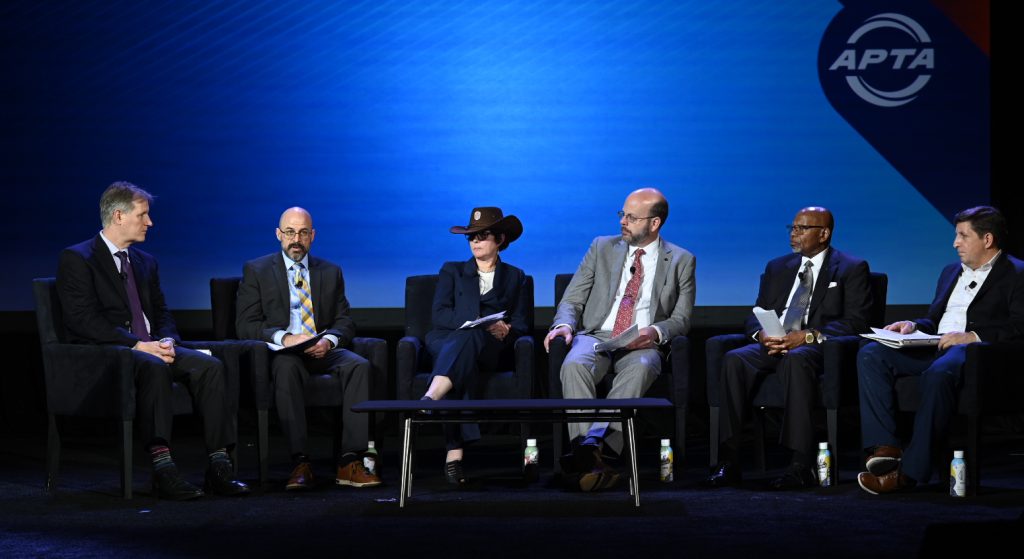FTA Staff Look at What’s Ahead for Transit
5/3/2024

Matthew Welbes, FTA executive director, is in the right place at the right time, said APTA Chair Michele Wong Krause, as she introduced the Federal Partners Update session April 29 at APTA’s Mobility Conference.
“Right now, a big part of his job is giving billions of dollars to transit projects that will change public transportation for decades to come. It is hard to imagine a more qualified person for this role,” Krause said. Welbes has held critical positions throughout FTA, earning both the Presidential Meritorious Service Award and the Secretary of Transportation’s Gold Medal for Outstanding Service for his work.
Welbes opened the conversation by emphasizing partnership. “We’re really trying to spotlight the good work we do together,” he said, before inviting colleagues to join a panel discussion, including: Joseph DeLorenzo, associate administrator for transit safety and oversight/chief safety officer; James Harper, director, Office of Acquisition Management and chief business advisor; Paul Kincaid, associate administrator for communications and congressional affairs; Dana Nifosi, acting chief counsel; and Bruce Robinson, acting associate administrator for program management.
Safety was a major topic. DeLorenzo said that FTA has proposed a general directive and rulemaking for comprehensive safety improvements, with a focus on operators, because “I think we all recognize that safety starts from the ground up.” One change proposed for Public Transportation Agency Safety Plans is “laying out, foundationally, what a minimum standard looks like for a [Railway Worker Protection] program.”
Nifosi and Harper gave an overview of FTA’s work on bus procurement assistance, and referred to a website with additional resources and training at (www.transit.dot.gov/funding/procurement/bus-procurement).
Minimizing customizations and using performance specifications can give funding applicants an advantage, they said. A recent Notice of Funding Opportunity gave weighted priority consideration to agencies in joint procurement agreements with a shared specification, and those who commit to a base-model bus certified by a partner manufacturer.
Applicants also could benefit from committing to advance, or progress payments, or opting to buy from existing state purchasing schedules. Also, Harper said, performance specifications “allow manufacturers to compete to deliver the best-performing vehicles at a lower price without prescribing how they are to achieve that performance.” To agencies that chose a design specification instead, he advised including language to allow manufacturers to make substitutions.
Budgeting policy proposals would allow transit agencies to acquire land and fund micromobility projects and provide a match up to 100 percent of funding for projects focused on residents in rural areas, seniors, or those who have disabilities. Rule changes could expand eligibility for businesses in the Disadvantaged Business Enterprise program, as well.
Welbes ended the session by reiterating the administration’s commitment. “We really are investing in this country … we’re trying to improve and fix the issues of the past, and we’re trying to build a more equitable, more bright future for public transportation.”
See more images from the conference here.